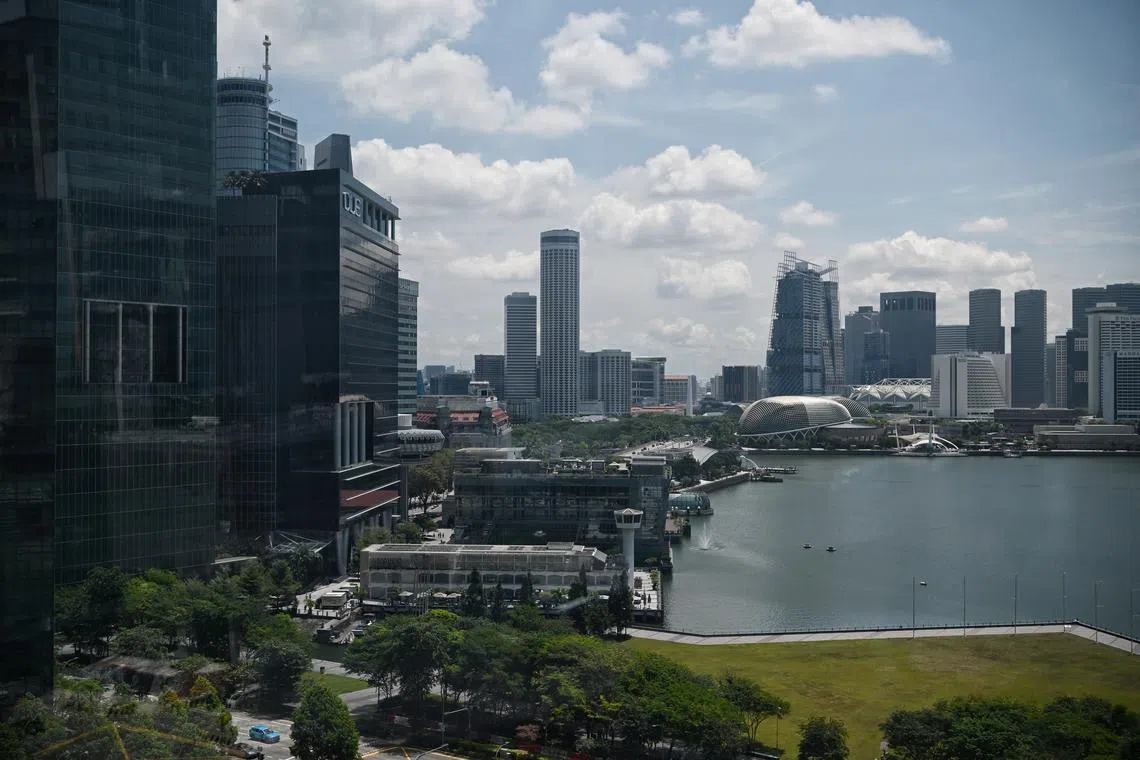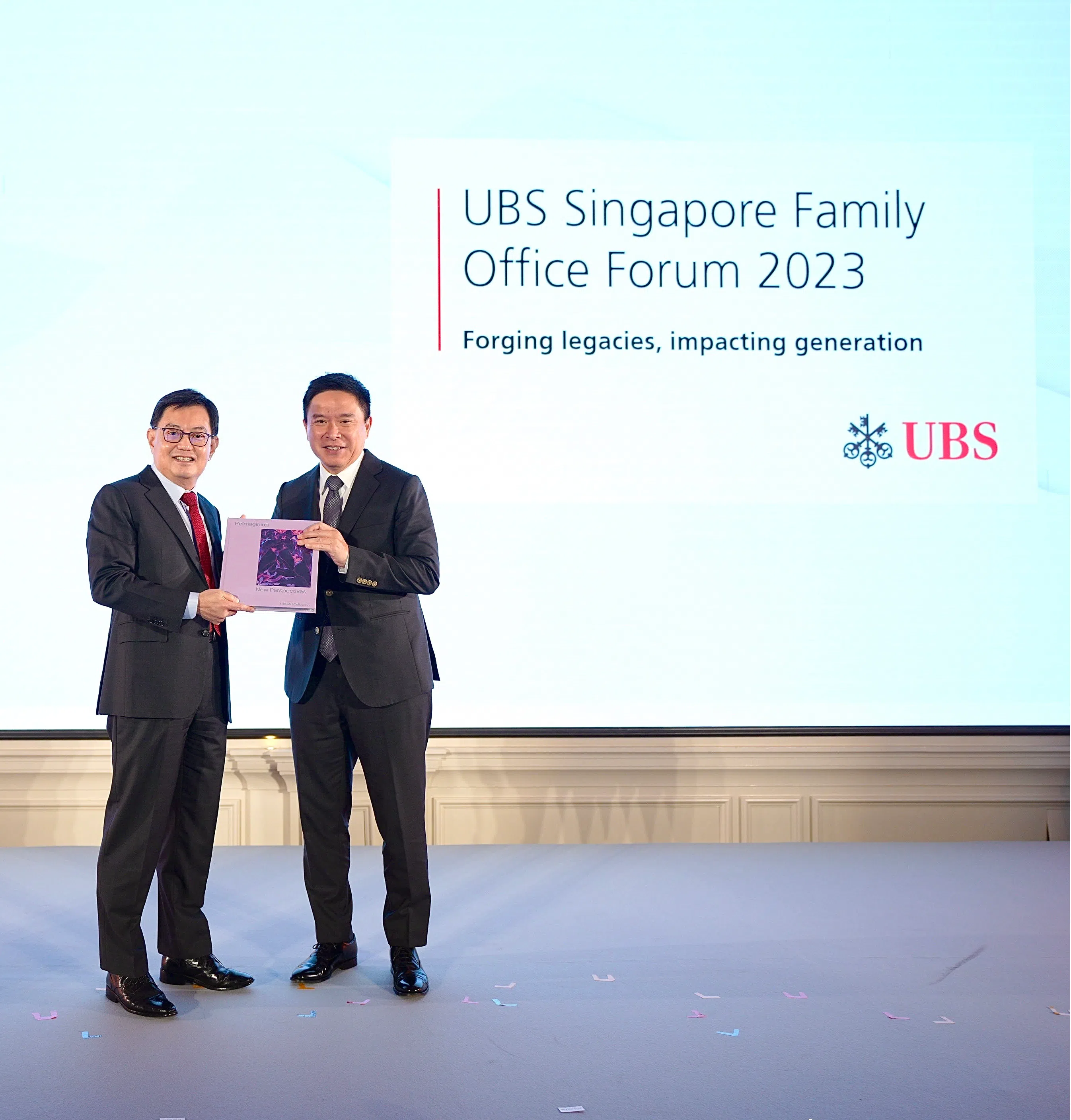Family offices can ‘forge legacies and impact generations’ with their wealth: Heng Swee Keat
Sign up now: Get ST's newsletters delivered to your inbox

It is important for investors to “look beyond just quarterly or annual results to focus on longer-term returns and impact”, said DPM Heng Swee Keat.
PHOTO: ST FILE
SINGAPORE – Family offices have the opportunity to “forge legacies and impact generations” by investing in the future and deploying their capital towards philanthropy.
In this way, they can “bring benefits not only to their next generations but to the world”, said Deputy Prime Minister and Coordinating Minister for Economic Policies Heng Swee Keat.
He was delivering a keynote address at the UBS Singapore Family Office Forum on Friday.
The event brought together more than 200 family offices with an estimated total net worth of more than US$200 billion (S$270.6 billion) to explore the theme “forging legacies, impacting generations”.
Opening his address, Mr Heng said: “The choices that we make today – action or inaction, investments or disinvestments – will take us across different paths, for ourselves and for our future generations.”
It is important for investors to “look beyond just quarterly or annual results to focus on longer-term returns and impact”.
UBS Asia Pacific president Edmund Koh said in his welcome address that there is a “mindset shift” among the bank’s family office clients. Many now see succession as more than just passing on wealth.
“Bringing up the next generation with a deep understanding and pride in their family heritage and values; and harmony between family members have become even more crucial,” he said.
Many family offices have also increasingly contributed to society through philanthropic initiatives and UBS is working with them to “tackle some of the world’s most pressing social and environmental problems”.
Mr Heng suggested two areas where family offices can make a positive impact – by investing in sectors of the future so that capital is deployed productively to support growth and innovation, and create new jobs; and by investing for the social good through giving back and contributing to the development of their communities and societies.
Because family offices take a long-term view of investment, Mr Heng said they can expand the capital pool available to start-ups and business ventures to develop innovative solutions in new growth areas.

Deputy Prime Minister and Coordinating Minister for Economic Policies Heng Swee Keat (left) with UBS Asia Pacific president Edmund Koh at the UBS Singapore Family Office Forum on July 7.
PHOTO: UBS
Digitalisation, artificial intelligence, fintech, automation, health and medical technology, and the green economy are examples of new areas of growth.
“If we can channel investments to catalyse innovation, and to make and scale technological breakthroughs, we can address many of our global challenges like climate change and an ageing population,” Mr Heng noted.
The second area where family offices can make a difference is via philanthropy to improve societies and strengthen social cohesion.
Globalisation has brought about greater wealth inequality both among and within countries, Mr Heng said, citing the 2022 World Inequality Report. It found that the richest 10 per cent of the global population owns 76 per cent of the wealth, and the poorest half owns just 2 per cent.
He said family offices can contribute to narrowing this gap between the haves and have-nots since they seek two types of “ROI” – the traditional “return on investment” and the “rate of impact”.
Investing for impact means family offices can be “more flexible, patient and risk-tolerant in the ways they channel their resources” for society, Mr Heng added.
Currently, nine out of 10 single family offices in the region are involved in philanthropy, each disbursing US$4 million annually on average, he said.
As the world transitions to net-zero carbon emissions and a more sustainable future, greater investments are also being sought to back the green drive.
Asia is expected to require up to US$37 trillion in investment by 2050 as it moves towards net zero, Mr Heng said, adding that family offices can chip in with their philanthropic capital.
“Some green projects may be deemed too risky for traditional private sector capital, from a returns perspective,” he noted.
In such cases, family offices can contribute resources and do philanthropy at the same time.
Their funds will take on the initial losses of the green project so that it becomes less risky and hence more attractive to private investors, who can then come in to “close the funding gaps”.
Mr Heng said Singapore will build a strong ecosystem and good governance to facilitate the deployment of capital for the future economy, and to achieve tangible social impact.
As at end-2022, there were 1,100 single family offices here which were awarded tax incentives by the Monetary Authority of Singapore. This is an increase from the 700 recorded in 2021 and the 400 as at end 2020.
On Wednesday, the MAS updated its tax incentives
Tax incentives were also adjusted to encourage these firms to deploy capital more “purposefully” in climate-related projects and for philanthropic causes.


